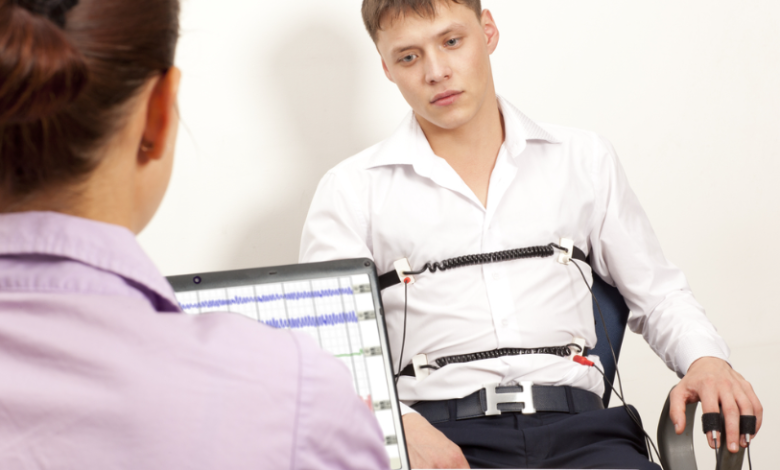Lie Detector Tests in Alabama: Understanding the Application and Limitations of Polygraph Testing

Polygraph tests, widely known as lie detector tests, are tools designed to measure a person’s physiological responses to questions in order to assess truthfulness. These responses typically include changes in heart rate, blood pressure, respiration, and skin conductivity. The underlying assumption is that when a person lies, their body exhibits signs of stress or anxiety that can be recorded and interpreted by a trained examiner. In Alabama, polygraph tests are used in various settings, including law enforcement investigations, pre-employment screenings for certain government and security jobs, and occasionally in private matters. However, the legal use of polygraph results is carefully regulated, and their accuracy remains a topic of debate in both scientific and legal communities. While the polygraph continues to be a popular tool for gathering information, its use is often limited by legal standards and concerns over its reliability.
How Polygraph Tests Work
A polygraph test involves a structured process that is generally divided into three phases: the pre-test, the examination, and the post-test analysis. During the pre-test, the examiner interviews the subject to understand their background and establish baseline readings by asking simple, non-threatening questions. In the examination phase, the subject is connected to a polygraph instrument via sensors placed on the chest, fingers, and arm to monitor physiological reactions. The examiner then asks a series of questions, which typically include irrelevant, control, and relevant questions. The relevant questions are those that directly pertain to the matter under investigation. The post-test phase involves analyzing the recorded data to detect patterns that may indicate deception. In Alabama, polygraph examiners must be licensed and are required to follow state and professional guidelines that promote ethical and accurate testing procedures. The outcome of the test is ultimately based on the examiner’s interpretation of physiological changes, which adds a subjective element to the process.
Legal Status of Polygraph Testing in Alabama
In Alabama, the use of polygraph testing is governed by a mix of federal and state laws. The federal Employee Polygraph Protection Act (EPPA) generally prohibits private employers from requiring or requesting lie detector tests from employees or job applicants, with specific exemptions for positions involving security services, pharmaceuticals, or government contracts. At the state level, Alabama permits the use of polygraph testing in criminal investigations and government employment, especially in law enforcement. Many police departments in the state use polygraph tests as part of their hiring process to assess a candidate’s honesty and suitability for the role. However, it is important to note that participation in a polygraph test for employment is often voluntary, though declining may impact the applicant’s chances. In court, polygraph results are typically inadmissible as evidence unless both parties agree to their inclusion, which is rare due to longstanding questions about the test’s scientific credibility and susceptibility to error.
See also: The Importance of Secure HIPAA Faxing in Healthcare Organizations
Concerns Over Accuracy and Ethical Implications
Despite their continued use, polygraph tests are not without controversy. While some proponents claim the tests are highly accurate when administered by trained professionals under controlled conditions, many researchers and legal experts question their reliability. The primary concern is that polygraphs do not detect lies directly; instead, they measure physical reactions that may be caused by stress, fear, or other emotions unrelated to deception. A truthful person may appear deceptive due to nervousness, while a skilled liar could pass the test by remaining calm. These possibilities raise ethical concerns, particularly when test results influence decisions that affect a person’s career or legal standing. In Alabama, as elsewhere, law enforcement agencies and employers are advised to use polygraph tests as supplementary tools rather than definitive measures of truthfulness. Given the subjective nature of interpreting results, polygraphs should be paired with other investigative techniques to ensure fairness and accuracy.
The Role of Polygraph Testing in Alabama’s Future
The future of polygraph testing in Alabama may evolve as new technologies and scientific methods emerge in the field of lie detection. Advances such as functional MRI scans and artificial intelligence-based behavioral analysis are being explored for their potential to more accurately detect deception. However, these technologies are still in the research phase and not yet practical or widely accepted in real-world applications. For now, polygraph testing remains a prominent tool in Alabama’s law enforcement and certain employment sectors, valued for its ability to prompt confessions, screen candidates, and support investigative efforts. Nevertheless, its limitations must be acknowledged, and any use of the polygraph should be accompanied by a clear understanding of its legal boundaries and potential for error. By maintaining ethical standards and respecting individual rights, Alabama continues to balance the usefulness of polygraph tests with the need for fairness and scientific integrity.
Location in Alabama
- Montgomery – 445 Dexter Ave suite 4050, Montgomery, AL 36104, United States
- Birmingham – 2100 Southbridge Pkwy Suite 650, Birmingham, AL 35209, United States
- Mobile – 11 N Water St 10th Floor, Mobile, AL 36602, United States





